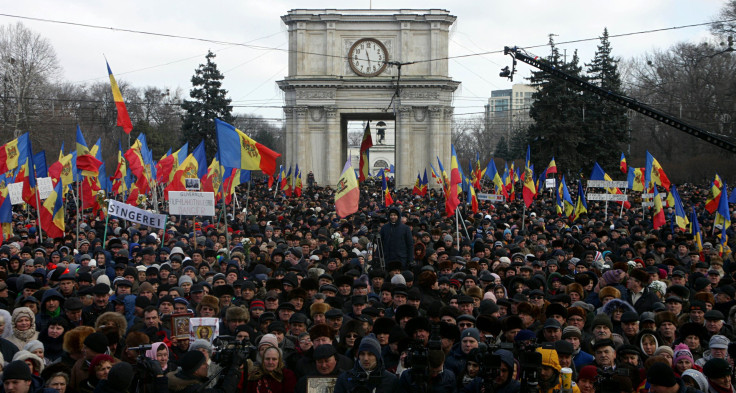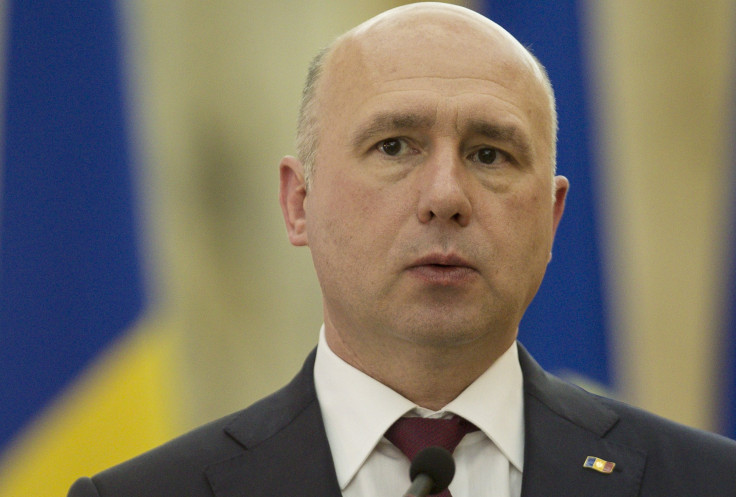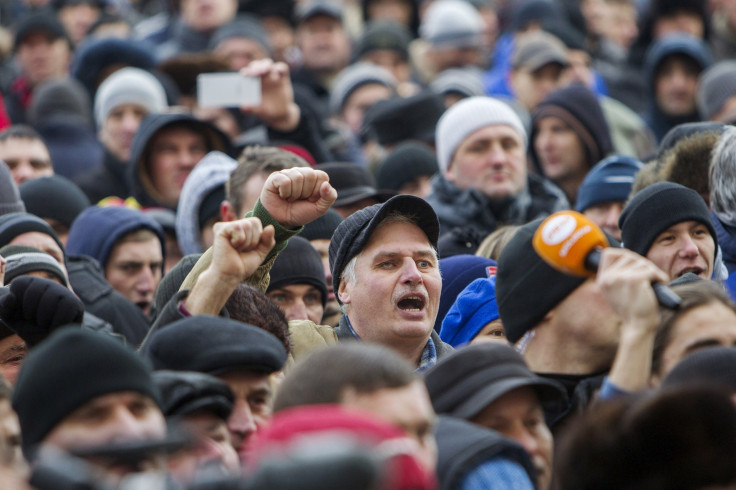Moldova, The New Ukraine: Pro-Russian Street Protests in Moldova Set to Escalate

MOSCOW — On the surface, huge anti-government demonstrations in Moldova, the poorest country in Europe, are mirroring recent events in Ukraine when violent standoffs in the capital, and then in the country’s south and east, were defined by allegiance to either Moscow or the European Union.
But things in this former Soviet republic are more complicated.
“What we’re seeing is a state collapse and an economic collapse,” contends Balázs Jarábik, a visiting scholar at the Carnegie Endowment for International Peace, who specializes on Eastern Europe. “It could turn violent, and there are a lot of weapons around.”
Mass protests in Moldova flared up earlier this month when a new prime minister, Pavel Filip, was suddenly sworn in at midnight — following months of political deadlock — without any media presence, triggering an attempt by demonstrators to storm the parliament building.
A subsequent deadline imposed by the opposition — a loose coalition of both pro-Russian and pro-EU groups — for the dissolution of the government and fresh elections is set to expire Thursday evening. If their demands are not met, the protesters threaten to bring tens of thousands of people out onto the streets of the Moldovan capital, Chisinau, and begin a campaign of civil disobedience.
Filip has upped his rhetoric ahead of the ultimatum. “The political class now has its last chance to restore Moldovans’ and our international partners’ trust,” Filip told the BBC in an interview earlier this week. “Your freedom to swing your fist ends at my nose… Any action by protesters that could be considered a violation of the law will be punished.”

While Filip, a former telecommunications minister, maintains he is independent, critics say he is little more than the puppet of Moldova’s richest man, Vladimir Plahotniuc, who is characterized as enjoying almost total control over the country's governing apparatus, including law enforcement bodies.
Plahotniuc denies he wields undue influence, but he is widely hated among ordinary Moldovans, many of whom subsist on a baseline family income of $300 a month. The term “captured state” is often used to describe the dynamic of Moldova’s pervasive graft and powerful oligarch elite.
The country was rocked last year by the discovery of a huge banking fraud involving three major banks in which about $1 billion — or one-eighth of Moldova’s gross domestic product — was smuggled offshore through a complex system of toxic loans, asset swaps and shareholder deals. Prime Minister Vlad Filat, a long-term rival of Plahotniuc who had been in office since 2009, was arrested in October over the affair and remains in detention. He has protested his innocence.
Rolling street demonstrators have seen protesters camping out in Chisinau since September, echoing the tented encampments that Ukrainian protestors erected in central Kiev in late 2014 that were the hub of opposition to the regime.
Protests have brought people out to the streets in numbers not seen Soviet rule collapsed in the early 1990s. They are being led by the pro-EU Dignity and Truth party as well as several pro-Russian groups, including the Our Party, led by the young, charismatic Renato Usaty, who does not hide his close ties to Moscow.
“This government has no support in society: The problem is a captured state and endemic corruption,” according to Oazu Nantoi, program director at Chisinau's Institute of Public Policy.

The corruption revelations last year and the popular disgust they generated have undermined efforts by the EU, including several tranches of significant financial aid, to promote integration under an association agreement between European states and Moldova that was signed in 2014.
The street opposition against Filip has been closely covered by Russian state television and is characterized by many Russian observers as ordinary people speaking out against a chronically corrupt regime backed by the U.S. and the EU. “The task of the West is to keep Filip in power and the West will use all possible levers to achieve this,” said Vasily Kashirin, an expert on Moldova at the Russian Institute of Strategic Research, a think tank that advises the Kremlin on foreign policy.
Moldova has traditionally been split along ethno-linguistic lines and the population is divided between those who want to follow the course of neighboring Romania into the EU, and those who look to Moscow, the country’s Soviet-era master.
While the situation may appear ripe for an attempt by the Kremlin to exert its influence in the region — Moldova even has a statelet, the mainly Russian-speaking separatist Trans-Dniester, on its eastern border that is closely linked to Moscow — experts remain wary about predicting aggressive Russian moves.
“Corruption is the most dangerous threat, not pro-Russian parties,” said Nantoi. “It is not that pro-Russian groups are strong, but that pro-EU ones are weak.”
© Copyright IBTimes 2024. All rights reserved.






















